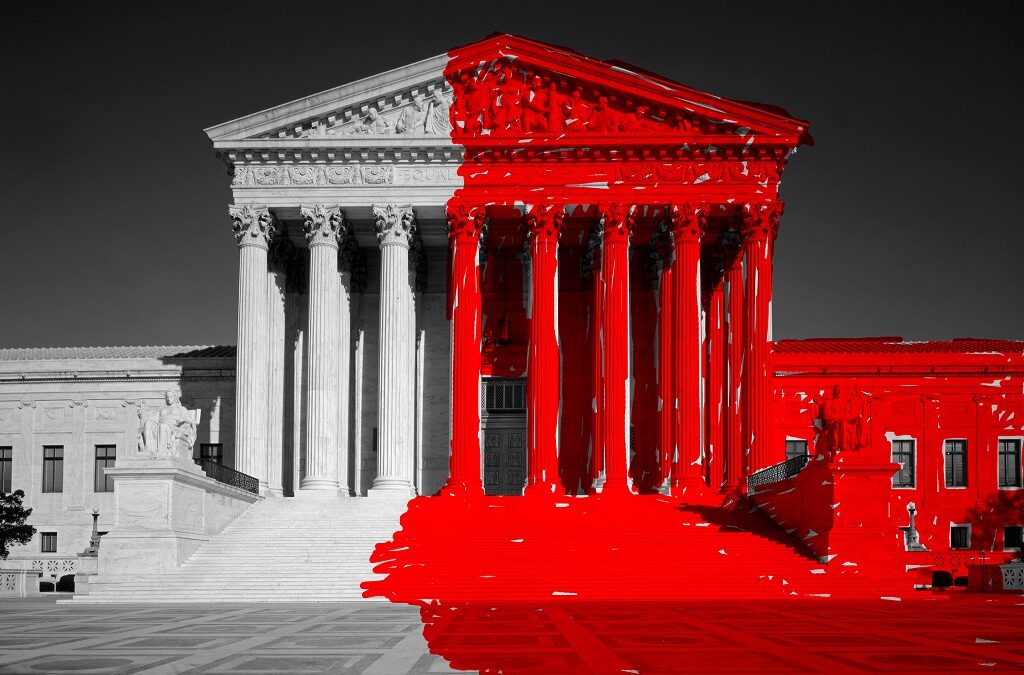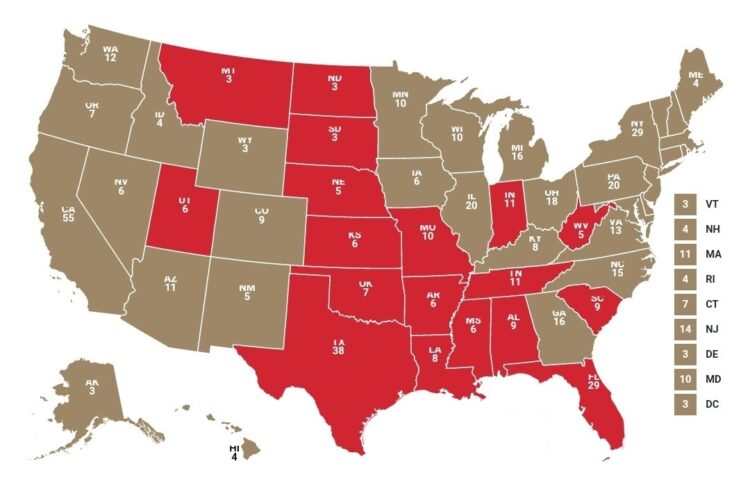We are living through interesting times as the losing president attempts to rally his partisan political forces, including his appointees to the Supreme Court, to overturn the election.
It is a coup attempt in front of our own eyes, something history will study for many years to come.
Is the United States still a Republic — a nation of law — or has it become a banana Republic, where a political strongman can refuse to abide by the certified results of a fair election in order to stay in power?
Although all 50 states have certified their election results and the Supreme Court swiftly rejected an emergency request from Pennsylvania Republicans to block election results in the commonwealth, the justices on the high court are now grappling with a new controversial bid from Texas, supported by Trump and 17 other Republican-led states.
They are asking the Supreme Court for an emergency order to invalidate the ballots of millions of voters in four battleground states — Georgia, Wisconsin, Michigan and Pennsylvania — even though there is no evidence of widespread fraud.
None.
Let that be understood.
There is no magical voter fraud ‘kraken’ as one of Trump’s former lawyers so famously proclaimed weeks ago.
Court after court, in state after state, has found the Trump claim of widespread voter fraud is bogus.
Rather, this is an audacious and legally dubious gambit to keep the lawsuits flowing in order to prolong baseless claims that President-elect Joe Biden’s victory was somehow illegitimate.
And according to a new Quinnipiac poll today, it’s working with Republicans.
Nearly eighty percent of the GOP believe there was voter fraud, despite there being absolutely no proof.
It’s a dangerous gamble, to overturn an election in favor of a dictatorship.
Not all Republicans are following Trump off the lunacy ledge.
Sen. Ben Sasse, a potential 2024 GOP presidential candidate, ripped into Texas Attorney General Ken Paxton for filing the lawsuit.
‘I’m no lawyer, but I suspect the Supreme Court swats this away,’ Sasse said today. ‘From the brief, it looks like fella begging for a pardon filed a PR stunt rather than a lawsuit – as all of its assertions have already been rejected by federal courts and Texas’ own solicitor general isn’t signing on.’
Paxton is under criminal investigation by the FBI over claims that he abused the powers of his office to aid a wealthy donor.
Trump is reportedly preparing a list of his ‘fans’ to pardon before he leaves office.
Benjamin Ginsberg, a longtime Republican election law expert, said today that he didn’t think the court “for an instant” will consider taking up the case.
The GOP “used to be a party for states’ rights,” Ginsberg said. “I can’t imagine something that is less faithful to the principle of states’ rights than a Texas attorney general trying to tell other states how to run their elections.”
Sen. John Cornyn, the senior Texas Republican, said “I frankly struggle to understand the legal theory of it. Number one, why would a state, even such a great state as Texas, have a say-so on how other states administer their elections? We have a diffused and dispersed system and even though we might not like it, they may think it’s unfair, those are decided at the state and local level and not at the national level.”
Paxton filed the lawsuit Tuesday, essentially asking the Supreme Court to swing the election to Trump.
Trump on Wednesday filed a motion to intervene, along with seventeen GOP states.
The leaders of the coup are asking for the court to block the electors from Georgia, Wisconsin, Michigan and Pennsylvania, which would push Biden back under the magic 270-electoral vote total to win.
The big question is whether the court will allow Paxton to file the suit.
It should be unlikely considering Texas has no jurisdiction in other states, and there is no precedent for this.
But if the case does go the way Republicans desire, the court would have to block certification of the Electoral College vote, determine that the four states had allowed massive amounts of “illegal” votes, have the states revisit their vote counts and then resubmit the numbers.
The court could also let state legislatures determine who wins each state or throw the entire election to the US House of Representatives, where each state delegation would have one vote — and since Republican delegations outnumber Democratic delegations, Trump would win.
Trump is banking on ‘his’ conservatives — Amy Coney Barrett, Brett Kavanaugh and Neil Gorsuch — to do his bidding, and there are two other conservative Justices, Clarence Thomas and Samuel Alito.
But the court has thus far shown no desire to intervene in the presidential election.
On Tuesday, it rejected the plea from Pennsylvania Republicans to invalidate the state’s presidential tallies.
It issued one sentence and noted zero dissents.
WHAT TO WATCH:
The Supreme Court is going through standard procedural protocols, and the four battleground states have responded.
Pennsylvania officials filed a blistering brief rebuking the Texas lawsuit, casting the move as using a “cacophony of bogus claims” to support a “seditious abuse of the judicial process.”
“Texas seeks to invalidate elections in four states for yielding results with which it disagrees. Its request for this Court to exercise its original jurisdiction and then anoint Texas’s preferred candidate for President is legally indefensible and is an affront to principles of constitutional democracy,” wrote Pennsylvania Attorney General Josh Shapiro.
The lawsuit, the court filing said, rested on a “surreal alternate reality.”
“Texas’s effort to get this Court to pick the next President has no basis in law or fact. The Court should not abide this seditious abuse of the judicial process, and should send a clear and unmistakable signal that such abuse must never be replicated.”
Whatever the legal standard, Shapiro argued, “Texas cannot meet it.”
“Nothing in the text, history, or structure of the Constitution supports Texas’s view that it can dictate the manner in which four sister States run their elections, and Texas suffered no harm because it dislikes the results in those elections,” the filing adds.
The court could act now, or wait until Texas files a brief replying to the arguments made by the battleground states.
The justices acted quickly in rejecting the Pennsylvania lawsuit on Tuesday, but they could bide their time as they have in other election-related cases.
They do “meet” Friday for their regular conference, now held over the phone.
Unlike a traditional cert petition (request for the court to hear a case), it will take five justices to agree to allow Paxton to file his suit.
Trump has also asked GOP Sen. Ted Cruz of Texas to represent him at the Supreme Court in the unlikely event it hears oral arguments.
We put the odds of that happening at less than one percent.

